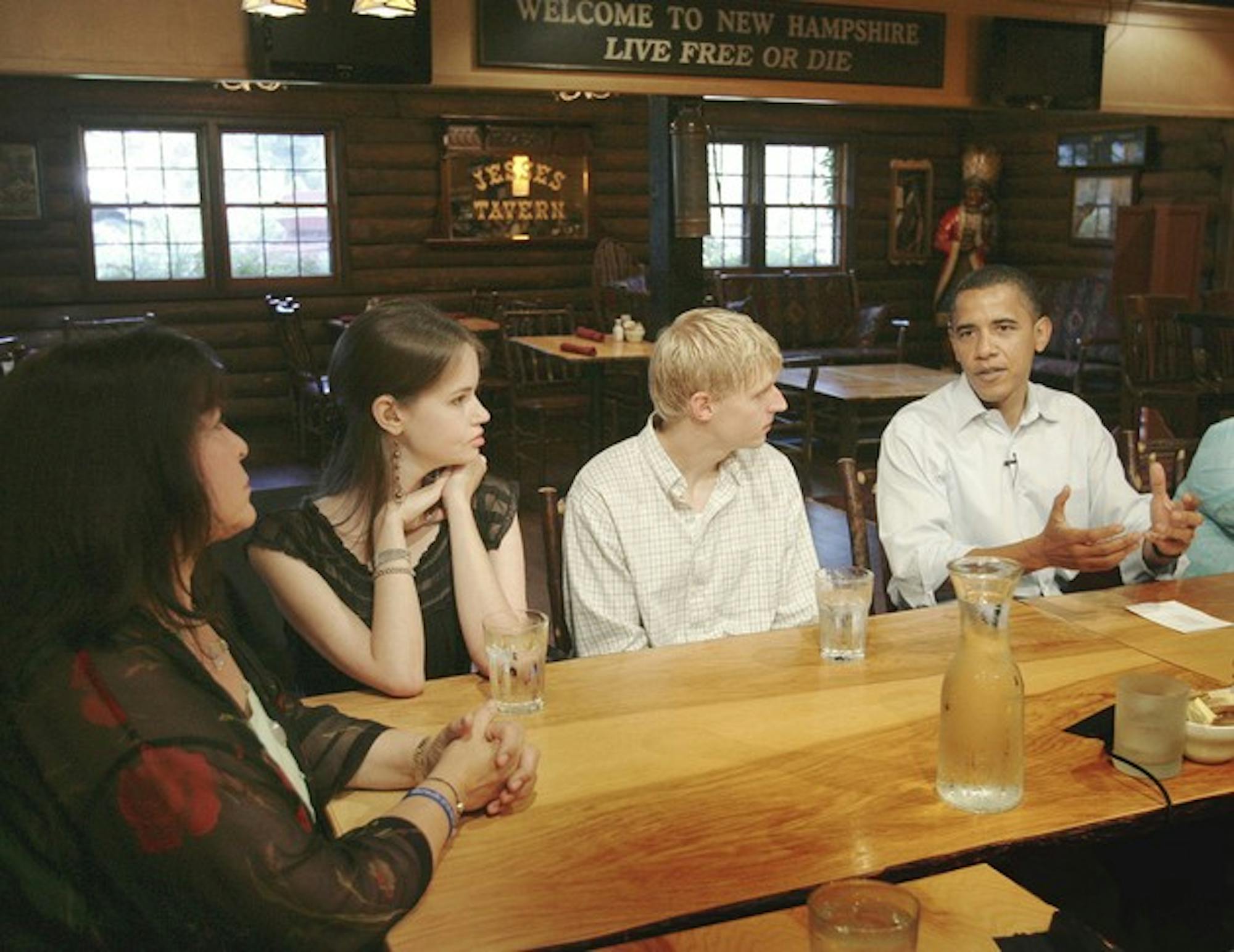To begin the event, Obama delivered a short speech in which he emphasized what he believes to be the alienation that many Americans feel from the federal government.
"Across the board, people feel that their voices are not being heard in Washington," he said.
Obama took issue with the lobbyist culture of Congress and the White House and attacked the Bush administration for incompetence and cronyism. He emphasized the need to overhaul the way federal legislation is made.
"One of my biggest jobs will be to restore the sense that there is something noble in public service," he said. "When you've got Mike Brown running [the Federal Emergency Management Agency] with no qualifications and [U.S. Attorney General] Alberto Gonzales politicizing the justice system, people get discouraged."
In a similar vein, Obama brought attention to the need for America to re-discover the principles that have made it a leader in the past in the realm of foreign policy.
"The way we are going to lead is through example and through principle," Obama said.
The Senator was very critical of the Bush Administration's use of torture in the war on terror and said that, if elected, he would close down the Guantanamo Bay detention camp and restore habeas corpus to terrorist suspects.
Although the discussion tangentially touched on the war several times, Obama never comprehensively addressed the war in Iraq. Instead, he broadly discussed the war on terror and advocated increasing economic aid in order to win the hearts and minds of people in the Middle East.
"There are 10- to 20-thousand people who are actively involved in radical Islamic terrorism and you are not going to convince them not to hate America," Obama said. "However, there are 1.3 billion Muslims just trying to raise kids and work -- that's the audience we've lost in recent years."
Issues regarding healthcare figured prominently in the panel discussion -- several Upper Valley residents, including a senior citizen and a small business owner, raised the topic on a number of occasions. Obama responded to their questions with a plan for universal healthcare that emphasized preventative medicine over disease care.
"We need to do what should have been done with drugs many years ago -- let the government negotiate with drug companies to set the lowest prices," Obama said.
He added that in order to achieve a sensible solution to the healthcare problem there would have to be a broad movement to overcome industry lobbyists.
Obama spent the last portion of the forum discussing the future of the American economy, specifically in the context of continued global integration. He emphasized the need to remain open to the international economy while making sure that the federal government takes care of displaced workers.
"In the future, half our workforce is going to be black and brown and these are the same kids that are dropping out of high school," Obama said. "As globalization accelerates, the countries that will do well economically will be the ones with the most highly skilled workers."
In conjunction with his discussion of the global economy, Obama addressed the issue of global warming.
"Between raising fuel efficiency and renewable energy standards as well as instituting a cap and trade system we have all the tools to stop the trend of global warming and eventually reverse it," Obama said.
He added that the United States first needs to deal with its own greenhouse emission problem before it can legitimately ask countries like India and China to curb their pollution.




